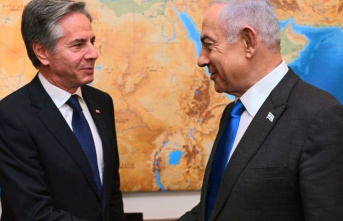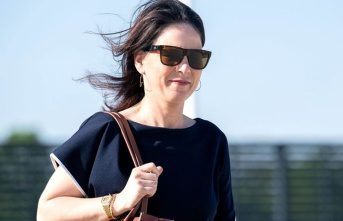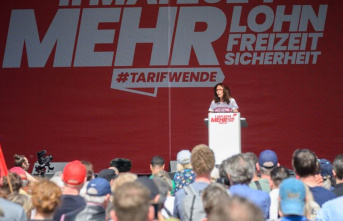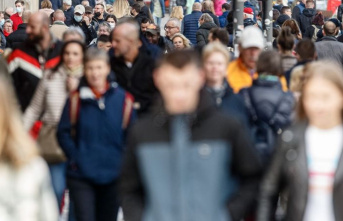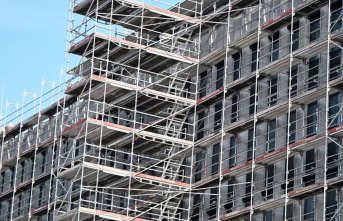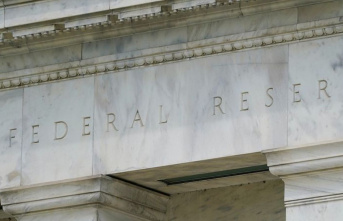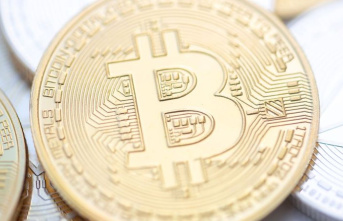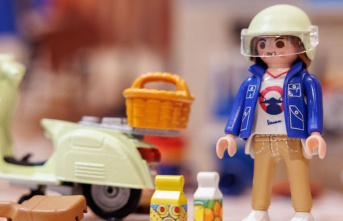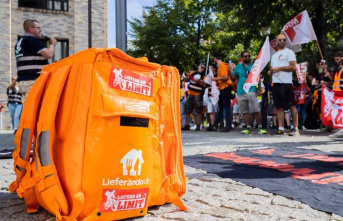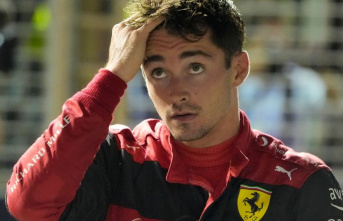Brazil used to be a big hit on the international stage. In the four years of his tenure, however, President Jair Bolsonaro has largely isolated Latin America's largest economy. The right-wing head of state forbade proposals to protect the rainforest, surprised the international community with his idiosyncratic corona policy and hardly traveled abroad. At the G20 summit in Rome last year, he stood lost at the buffet while the heads of state and government of the most important industrialized and emerging countries were chatting animatedly. The scene spoke volumes.
Whether Bolsonaro will continue to determine the image of his country in the world in the future will be decided this Sunday in the presidential election. More than 156 million eligible voters are asked to vote on their new head of state. The first results can be expected on Monday night.
Toxic effect
"Bolsonaro has caused Brazil to lose a great deal of its influence," says German-Brazilian political scientist Oliver Stuenkel from the Getúlio Vargas Foundation of the German Press Agency. "Its effects were downright toxic." Brazil has long been considered the opinion leader in the region, giving Latin America a voice in the emerging countries club Brics and in the G20.
Brazil is 24 times the size of Germany and has around 210 million inhabitants. This makes it the fifth largest country in the world in terms of area and the sixth largest in terms of population. Due to its sheer size and enormous natural resources, Brazil plays an important role in international security policy, world trade and climate protection.
That is why the presidential election in Brazil is also of great importance for the rest of the world. According to polls, left-wing ex-president Luiz Inácio Lula da Silva (2003-2010) should clearly beat Bolsonaro. If none of the candidates receive more than 50 percent of the votes in the first ballot, the two strongest candidates will meet in a runoff on October 30.
Trump as a role model
The election divided Brazil extremely. Lula calls Bolsonaro a genocide because of his hesitant corona policy, Bolsonaro scolds his opponent after his conviction for corruption as a thief. Similar to former US President Donald Trump, the incumbent has already indicated that he may not recognize the result. Many of his supporters are armed and are calling for a military coup. "Whether there is a peaceful handover after the election can strengthen or weaken democracy," says Stuenkel. "And given Brazil's size, that's important for democracy around the world."
Although Lula was not exactly known as a Green during his first two terms in office, he has now announced a new environmental and climate policy if he wins the election. "We will stop illegal gold mining and fight deforestation very seriously," he said. For example, the Amazonia fund for the protection of the rainforest, in which Germany is also involved, could be revived.
For Bolsonaro, on the other hand, the Amazon region is untapped economic potential. He wants to open up even more land for agriculture, mining and energy production. The worst fires in 12 years are currently raging in the rainforests of Brazil. "Jair Bolsonaro's policy is like poison for the Amazon. It is one of the largest carbon sinks on earth. If it continues to be destroyed, we can only watch the progressing climate crisis," says Roberto Maldonado from the nature conservation organization WWF. "When voting, the Brazilians decide not only about their own future but also about that of the global climate."
Free trade agreement on hold
Bolsonaro's refusal to protect the climate is also slowing down economic relations between South America and Europe. The free trade agreement between the South American confederation of states Mercosur and the EU is currently on hold - partly because critics in Europe fear that the agreement will further fuel the destruction of the rainforest in Brazil. In view of rising energy and food prices in Europe, however, Brazil could become an interesting trading partner in the future.
"Regardless of whether Bolsonaro or Lula wins the election, we have to change our trade relations. So far, we have promoted the destruction of nature in Brazil with our imports," says WWF expert Maldonado. "Soya, among other things, is now grown where there used to be rainforest in Brazil. This is often imported to Germany as animal feed."
According to political scientist Stuenkel, Brazil could resume its active role in international politics. However, it is a misconception that with Lula the diplomacy from his early tenures from 2003 to 2010 would automatically return - after all, multilateralism has recently gotten on the defensive in the face of protectionism and aggressive wars. "The global situation is much more difficult for Brazil today than it used to be," says Stuenkel.
Analysis Morning Consult Analysis Elcano BMZ on Brazil KAS on international cooperation with Brazil Homepage Observatório do Clima Homepage Oliver Stuenkel


